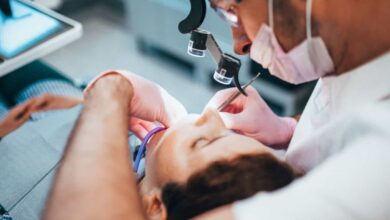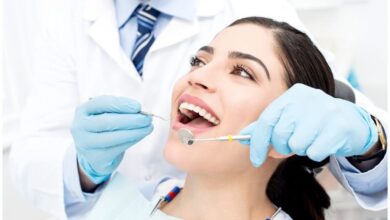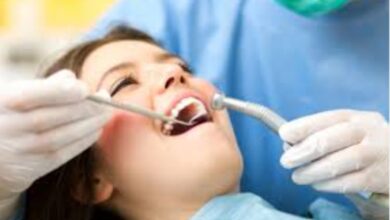Finding the Best Emergency Dentist in Hartford, CT: Your Ultimate Guide

Understanding Dental Emergencies
Dental emergencies always seem to happen at the worst times, right? It’s good to know what’s considered a real emergency so you don’t panic over every little thing. Plus, knowing what to do can save you a lot of pain and maybe even save a tooth!
Types Of Dental Emergencies
So, what counts as a dental emergency? It’s more than just a little toothache. We’re talking about things like:
- Severe toothaches: The kind that keep you up at night and don’t respond to over-the-counter pain meds.
- Knocked-out teeth: Time is of the essence here! The sooner you see a dentist hartford ct, the better the chance of saving the tooth.
- Abscesses: These are infections that can spread quickly and become serious.
- Uncontrolled bleeding: If you can’t stop the bleeding after applying pressure for a while, get help ASAP.
- Broken or fractured teeth: Especially if it’s causing a lot of pain or has sharp edges.
Signs You Need Immediate Care
How do you know if it’s really an emergency? Look out for these signs:
- Intense pain: Pain that’s unbearable and doesn’t get better with pain relievers.
- Swelling: Especially if it’s in your face or neck, as this could indicate a serious infection.
- Bleeding: Bleeding that won’t stop after applying pressure for 15-20 minutes.
- Difficulty breathing or swallowing: This could be a sign of a severe infection that needs immediate attention.
- Trauma: Any significant injury to your mouth or teeth.
Common Causes Of Dental Emergencies
Dental emergencies can pop up for all sorts of reasons. Here are a few common culprits:
- Poor oral hygiene: Not brushing and flossing regularly can lead to cavities and gum disease, which can cause pain and infection.
- Trauma or injury: Accidents, sports injuries, or even just biting down on something hard can damage your teeth.
- Decay: Untreated cavities can worsen and cause severe pain or infection.
- Old dental work: Fillings, crowns, or other dental work can fail over time and cause problems.
- Grinding or clenching your teeth: This can put a lot of stress on your teeth and lead to fractures or other issues.
It’s important to remember that dental emergencies can be scary, but knowing what to look for and what to do can make a big difference. Don’t hesitate to seek help from a dentist hartford ct if you’re experiencing any of these symptoms. Your oral health is important, and getting prompt treatment can prevent serious complications.
How To Find An Emergency Dentist
Okay, so you’ve got a dental emergency. Time is of the essence! But how do you actually find someone who can help, especially if it’s outside normal business hours? Don’t worry, it’s not as hard as it seems. Here’s the lowdown.
Contact Your Regular Dentist
First things first: call your regular dentist. Even if their office is closed, they might have an emergency hotline or an answering service that can connect you with someone. At the very least, they can probably give you advice on what to do until you can be seen. They might even have arrangements with other dentists in the area to cover emergencies for their patients.
Ask For Recommendations
Don’t be afraid to ask around! Friends, family, coworkers – someone you know has probably had a dental emergency at some point. Personal recommendations can be super helpful because you’re getting firsthand accounts of people’s experiences. Plus, it’s always good to hear a friendly voice when you’re stressed out.
Utilize Online Resources
If you’re striking out with your dentist and personal network, the internet is your friend. A quick search for “emergency dentist Hartford CT” will give you a bunch of options. Just be sure to do a little digging before you commit. Here’s what to look for:
- Check their website: Does it look professional? Does it list their services and hours?
- Read reviews: See what other patients are saying about their experiences. Take everything with a grain of salt, but look for patterns.
- Verify their credentials: Make sure they’re a licensed dentist in Connecticut. You can usually find this information on the Connecticut Department of Public Health website.
Finding an emergency dentist can feel overwhelming, but remember to stay calm and take it one step at a time. By using these resources, you’ll be able to find a qualified professional who can provide the care you need.
What To Expect During Your Visit
Initial Consultation Process
Okay, so you’ve found an emergency dentist in Hartford – what happens next? First off, expect a quick but thorough check-in. They’ll probably ask you about your medical history, any allergies, and what exactly brought you in today. Be ready to describe your pain – where it is, how bad it is, and what makes it worse or better. They might also take your vitals, just to be safe. It’s all about getting a clear picture of what’s going on before they start poking around.
Common Treatments Offered
Emergency dentists handle a bunch of different problems. Here’s a quick rundown of some common treatments you might encounter:
- Pain Relief: This could be anything from a local anesthetic to stronger pain meds, depending on what’s causing you grief.
- Infections: If you’ve got an infection, they might prescribe antibiotics and clean the area. Root canals are sometimes needed to clear out infected pulp.
- Broken or Knocked-Out Teeth: They’ll try to repair or re-implant the tooth if possible. If it’s beyond saving, they might talk about extraction.
- Abscesses: Draining an abscess is a common procedure to relieve pressure and get rid of infection.
Post-Treatment Care Instructions
After your treatment, the dentist will give you specific instructions to follow at home. This is super important for a smooth recovery. Expect advice on:
- Medications: How often to take them, and what to do if you experience side effects.
- Diet: What you can and can’t eat while you’re healing. Soft foods are usually recommended.
- Oral Hygiene: How to gently clean the area without irritating it. Saltwater rinses are often part of the routine.
Don’t be afraid to ask questions! Make sure you understand everything before you leave the office. Knowing what to expect and how to care for yourself afterward can make a big difference in your recovery.
Evaluating Emergency Dental Services
Finding an emergency dentist is only half the battle. You also need to make sure they’re good. Here’s how to tell:
Checking Credentials And Experience
First, see if the dentist is properly licensed and board-certified. This information is usually available on their website or by asking directly. Don’t be shy about asking about their experience with specific emergency procedures. You want someone who’s seen it all and knows how to handle it.
Reading Patient Reviews
Online reviews can be super helpful, but take them with a grain of salt. Look for patterns. A few bad reviews might be outliers, but a consistent stream of complaints about the same thing (like long wait times or poor communication) is a red flag. Check out multiple review sites to get a well-rounded picture.
Understanding Treatment Costs
Emergency dental work can be expensive, so it’s important to understand the costs upfront. Ask for a breakdown of the estimated charges before any treatment is done. Also, find out what payment methods they accept and if they work with your insurance. Some offices offer payment plans, which can make things more manageable.
It’s always a good idea to call your insurance company beforehand to see what your policy covers for emergency dental care. Knowing your benefits can help you avoid surprises later on.
Emergency Dental Care Tips
Immediate Home Remedies
Okay, so you’ve got a dental emergency. First things first: don’t panic! Keeping calm is half the battle. There are a few things you can do at home before you even think about calling a dentist. If you’ve knocked out a tooth, gently rinse it off (if it’s dirty) and try to put it back in the socket. If that’s not possible, keep it in milk. For a toothache, rinse your mouth with warm salt water. This can help reduce inflammation and kill bacteria. Over-the-counter pain relievers can also help manage the pain.
When To Visit The ER
Most dental problems can wait for a dentist, but some situations need immediate attention at the emergency room. If you have uncontrolled bleeding, a serious infection that’s causing difficulty breathing or swallowing, or trauma to the face or jaw, head straight to the ER. These are signs of potentially life-threatening conditions that need to be addressed right away. Don’t delay – it’s better to be safe than sorry. It’s also important to consider that some dental offices, especially those offering services like invisalign berlin, may have limited emergency availability.
Preventive Measures For Future Emergencies
Honestly, the best way to deal with a dental emergency is to prevent it from happening in the first place. Here are some things you can do:
- Brush and floss regularly. Seriously, don’t skip it.
- Wear a mouthguard when playing sports. It’s a simple way to protect your teeth.
- Avoid chewing on hard things like ice or hard candy. They can crack your teeth.
- See your dentist for regular checkups and cleanings. They can catch problems early before they turn into emergencies.
Having a small dental emergency kit at home can also be a lifesaver. Include things like dental floss, pain relievers, and a small container for a knocked-out tooth. Being prepared can make a big difference in how you handle a dental crisis.
Local Emergency Dentists In Hartford
Top Rated Practices
When you’re dealing with a dental emergency, knowing where to turn can make all the difference. In Hartford, CT, there are several dental practices known for their prompt and effective emergency care. It’s a good idea to have a list of these places handy, just in case.
- Check online directories for dentist hartford ct with high ratings and positive reviews.
- Ask friends, family, or your regular dentist for recommendations.
- Look for practices that specifically advertise emergency dental services.
Emergency Hours And Availability
Not all dental offices offer the same hours, and this is especially important when it comes to emergency care. Finding a dentist hartford ct that provides services outside of regular business hours can be a lifesaver. Some offices offer 24/7 availability, while others have extended evening or weekend hours.
- Call the dental office directly to confirm their emergency hours.
- Check their website for specific information about after-hours care.
- Consider whether they offer same-day appointments for emergencies.
Insurance And Payment Options
Dental emergencies can be unexpected, and so can the costs associated with them. Understanding the insurance and payment options available at different dental practices is important. Many offices accept a variety of insurance plans and offer payment plans to help manage expenses. Some offices may also offer financing options or discounts for cash payments. Don’t forget to ask about cosmetic dentist east hartford, veneers east hartford ct, or veneers berlin if you need those services.
It’s always a good idea to call your insurance provider beforehand to understand your coverage for emergency dental services. Knowing what to expect financially can reduce stress during an already difficult situation.
Here’s a simple table illustrating potential payment options:
| Payment Method | Accepted? | Payment Plans? | Financing Options? |
| Insurance | Yes | N/A | N/A |
| Credit Card | Yes | Yes | No |
| Cash | Yes | Yes | No |
| Financing | Yes | N/A | Yes |
Aftercare Following Emergency Treatment
So, you’ve just been through a dental emergency and gotten treatment. That’s great! But the work doesn’t stop there. Proper aftercare is super important to make sure everything heals well and to avoid more problems down the road. Here’s what you need to know:
Managing Pain And Discomfort
Okay, let’s be real, you’re probably in some pain. The dentist likely gave you instructions for pain management, so follow those closely. If they prescribed medication, take it as directed. Over-the-counter pain relievers like ibuprofen or acetaminophen can also help. You can also try cold compresses on your face to reduce swelling and numb the area a bit. Just wrap an ice pack in a towel and apply it for 15-20 minutes at a time, several times a day. Avoid hot foods or drinks, as they can make the pain worse.
Follow-Up Appointments
Don’t skip your follow-up appointment! It’s easy to think you’re all good once the initial pain subsides, but the dentist needs to check on the healing process and make sure there aren’t any complications. These appointments are usually scheduled a week or two after the emergency treatment. During the follow-up, the dentist will:
- Examine the treated area.
- Check for signs of infection.
- Make any necessary adjustments to the treatment.
- Answer any questions you have.
Maintaining Oral Hygiene
Keeping your mouth clean is always important, but it’s extra important after emergency dental work. Be gentle! Here’s what to do:
- Brush your teeth carefully, avoiding the treated area for the first few days.
- Use a soft-bristled toothbrush.
- Rinse your mouth with warm salt water several times a day. This helps to keep the area clean and promotes healing.
- Avoid using mouthwash with alcohol, as it can irritate the area.
After emergency dental treatment, it’s easy to fall back into old habits or neglect your oral hygiene because of discomfort. However, sticking to a good routine is key to preventing future problems and ensuring a smooth recovery. Think of it as an investment in your long-term dental health.
Wrapping It Up
In the end, finding the right emergency dentist in Hartford, CT, doesn’t have to be a headache. Just remember to keep a list of potential dentists handy, check their reviews, and don’t hesitate to ask around for recommendations. When you’re in a pinch, knowing who to call can save you a lot of stress. Make sure to reach out to your chosen dentist ahead of time to understand their services and hours. That way, when an emergency strikes, you’ll be ready. Take care of your dental health, and hopefully, you won’t need to use this guide too often!




